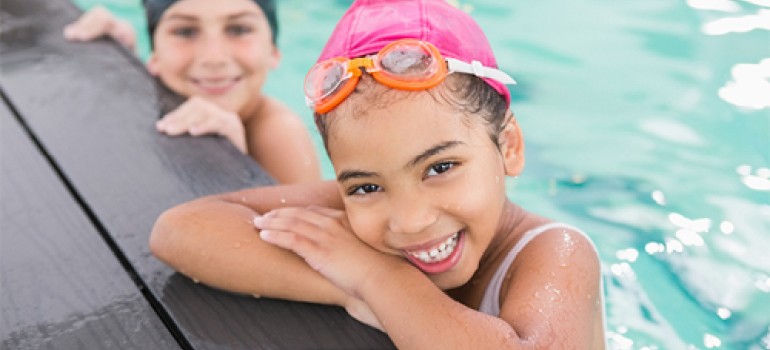
Five ways to be active with your kids on March break
Children are spending less and less time being active. In fact, only about 7 percent of Canadian kids get enough exercise.
Most kids spend at least five hours a day in front of screens, playing video games, using computers or watching television. According to Active Healthy Kids Canada, children and youth spend more than 7 hours each day not moving.
This is a concern for physicians, who recommend that kids limit their screen time to two hours a day. Sedentary behaviour has implications for both physical and mental health, including increased risk of being overweight or obese, increased chance of developing a chronic disease (such as Type 2 diabetes), reduced attention span, a decrease in bone-density and low self-esteem.
Doctors recommend children and youth should be active for 60 minutes every day. This includes 30 minutes of vigorous activity that gets the heart pumping. The 60 minutes of activity don’t need to be consecutive; rather, it counts all activity between waking up and going to bed.
March break is a time when many kids are tempted to stay in and be couch potatoes, but it’s actually a perfect opportunity to get your kids off the couch and out the door.
Here are five fun activities to help you and your kids get moving.
1. Seek outdoor adventure
We tend to be more active when we’re outside. Breathe in some fresh winter air as you explore your local trails and parks.
2. Dive in to swimming
Swimming is a great way to promote cardiovascular health, and it also improves strength and flexibility in children. Check your nearest indoor pool for public swim times.
3. Visit a local museum or gallery
March break is a great time to learn something new. Local museums and galleries are rich with history, fun facts and exciting ideas.
4. Train for a run
Challenge the whole family to start training for a fun run or 5k, and continue training together until the event.
5. Go skating
Sharpen your skates and hit the ice. Skating is a sport for all ages: it’s low impact, and helps improve co-ordination and balance. Many public arenas offer skate rentals at little to no cost – don’t forget your helmet! If you’re looking to skate on a local pond or lake, refer to local ice thickness reports to ensure it’s safe to skate on.
Physical activity has many benefits:
- Lowers likelihood of chronic disease
- Improves fitness
- Betters posture and balance
- Increases self-esteem
- Helps control weight
- Leads to stronger muscles and bones
- Leaves you feeling more energetic
- Reduces stress
- Provides an opportunity to make new friends
March break is the perfect time to squeeze in some extra physical activity and create healthier daily habits for your children and the entire family. Have fun!
